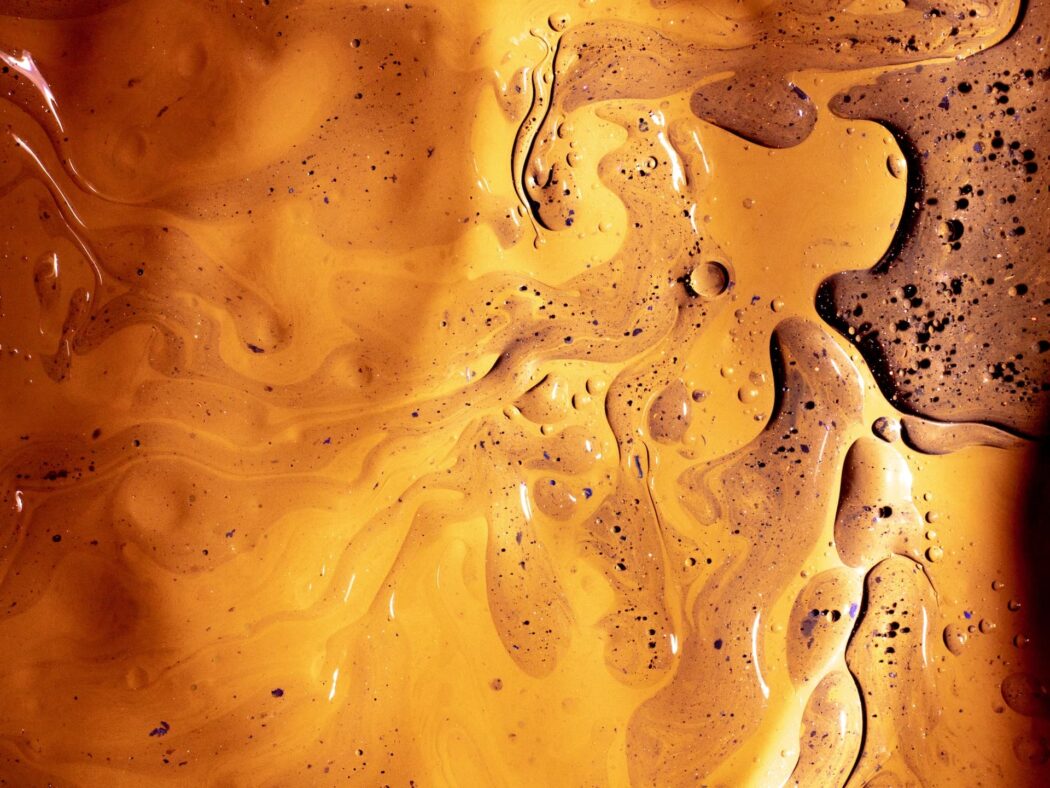Deere & Company is renowned for its wide range of industrial machinery, which includes everything from agricultural equipment to diesel engines and forest machinery. When it comes to fluid systems, the company has developed its own specialized oil, Hy-Gard, with a strong track record for efficiency and longevity.
However, many often wonder if Hy-Gard is the only fluid that can be used in John Deere systems. This article aims to provide a detailed answer, highlighting the best alternative fluids that meet or exceed the specifications set by John Deere.
The Significance of John Deere’s Proprietary Oil
John Deere manufactures a specific brand of lubricant known as Hy-Gard, with different grades—mainly high-viscosity (J20C) and low-viscosity (J20D)—for its array of equipment.
This specialized oil is designed to serve multiple purposes, such as powering transmissions, ensuring the functionality of wet brakes, lubricating gearboxes, and maintaining differential units. Although Hy-Gard is highly reputable, there are other brands available that offer comparable performance and reliability.
How to Identify Compatible Fluids
When it comes to finding alternative lubricants for John Deere machinery, it’s crucial to adhere to specific specifications for optimal performance. These specifications are primarily J20C and J20D, relating to high and low viscosity, respectively.
Fortunately, identifying such alternatives can be as simple as a trip to your local automotive parts store. Always confirm that the lubricant you are considering is compliant with John Deere’s specifications.
Top Picks for J20C High-Viscosity Fluids
1. Starfire Premium Tractor Hydraulic & Transmission Fluid
Owned by Coolants Plus, Starfire Lubricants’ premium fluid boasts an impressive 5,000 operational hours. It is engineered not only for power transmission but also provides excellent rust prevention and seal fortification.

2. Mobil Fluid 424 High-Performance Tractor Hydraulic Fluid
Although initially formulated as a low-viscosity solution, Mobil’s Fluid 424 also meets the J20C high-viscosity standard. This fluid excels in reducing chatter in wet brake and power take-off systems, as well as acting as an effective gasket sealant.
3. Triax Premium HLP Hydraulic Oil
Originally designed as a compatible fluid for CAT Hydo 10 systems, Triax Premium HLP
offers robust performance with a multitude of features:
- Foam resistance;
- Oxidation resilience;
- Rust defense;
- High-temperature stability.
Triax, initially a B2B manufacturer, entered the consumer market in 2015, making its high-quality products accessible to the general populace.
Online Availability and Purchasing Options
To make it easier for potential buyers, most of these alternative fluids are available for purchase on e-commerce platforms like Amazon. This convenience allows for quick price comparison and hassle-free acquisition, ensuring that maintaining your machinery is as effortless as possible.
It’s essential to recognize that while Hy-Gard is a well-crafted product, several high-quality alternatives can also fulfill the same roles effectively. When selecting an alternative lubricant, always ensure that it meets the specifications laid down by John Deere for the optimal performance and longevity of your machinery.
Given the array of options available in the market, you can find a product that not only meets your needs but also possibly exceeds them.
Factors to Consider When Selecting an Alternative Fluid
When you’re in the market for an alternative to John Deere’s Hy-Gard, several factors need to be considered:
- Viscosity Grades: Make sure the alternative fluid meets either the J20C or J20D specifications;
- Operational Hours: Look for products that offer long operational hours, as this is a sign of a high-quality fluid;
- Additional Features: Consider fluids that offer added benefits like rust protection, foam resistance, and high-temperature stability;
- Price: Although price shouldn’t be the sole determining factor, it’s essential to get value for your money;
- Brand Reputation: Stick to well-known brands that have a proven track record of quality and reliability.
By keeping these factors in mind, you can make an informed decision that ensures the effective and long-lasting operation of your machinery.
Eight Alternative Fluids for John Deere’s Hy-Gard
Deere & Company, widely known for its portfolio of industrial-grade machinery, creates its proprietary fluid known as Hy-Gard. This lubricating liquid is widely respected for its capabilities in transmitting mechanical power and reducing friction among moving parts in hydraulic systems.
However, are end-users strictly obligated to use only this branded liquid in their John Deere machinery?
Although Hy-Gard, available in different viscosity levels, is John Deere’s preferred recommendation for its equipment, there are several other compatible fluids that conform to similar viscosity levels and can be utilized in John Deere’s hydraulic systems, gearboxes, and other assemblies requiring lubrication.
Sourcing an alternative to Hy-Gard is as uncomplicated as a trip to your nearby automotive parts retailer. The primary consideration is adherence to the J20C (high viscosity) and J20D (low viscosity) specifications stipulated by John Deere.
This comprehensive guide aims to shed light on various high-quality replacements for Hy-Gard, across both high and low-viscosity types.
J20C High-Viscosity Replacements
Fluids that adhere to the J20C grade are typically employed during warm weather conditions. They possess a denser consistency that remains effective even when exposed to elevated temperatures.
Starfire Premium Tractor Hydraulic & Transmission Fluid
- Owned by Coolants Plus;
- Promises up to 5,000 operational hours;
- Acts as an anti-rust agent and enhances seal integrity;
- Meets J20C viscosity standards;
- Mobil Fluid 424 High-Performance Tractor Hydraulic Fluid;
- Versatile usage including power take-off chatter reduction and gasket sealing;
- Complies with multiple standards such as API GL-4 or SAE 80W;
- Suitable for a variety of heavy-duty machinery.
Triax Premium HLP Hydraulic Oil
- Previously known as Triax Lubricants LLC;
- Full suite of features including high heat tolerance and oxidation resistance;
- Initially produced for commercial and military use before entering the consumer market.
J20D Low-Viscosity Replacements
J20D-grade fluids are advisable for colder months, as they maintain a thinner consistency to counteract the natural thickening tendency of oils in cooler temperatures.
Hapco Premium Hydraulic Oil
- All-in-one fluid compatible with standard hydraulic oils;
- Anti-corrosion and rust-inhibiting properties;
- Not recommended for hydraulic brake systems;
- Kubota Super UDT 2;
- Originating from Osaka, Japan;
- Ideal for heavy-duty machinery including wet brakes and hydrostatic drives;
- Pricier but backed by a highly reputable brand.
Mag 1 Universal Tractor Hydraulic Fluid
- Owned by Warren Distribution, established in 1922;
- Protects against oxidation and thermal degradation;
- Suitable for a broad temperature range.
Selecting the Right Fluid for Your Hydraulic System
A fluid for a hydraulic system isn’t just a simple lubricant. It has multiple roles to play, such as:
- Facilitating the transfer of power;
- Sealing gaskets;
- Serving as a heat-transfer medium.
In addition, hydraulic fluids can be classified based on their base or chemical composition into:
- Water-based;
- Petroleum-based;
- Synthetic.
Each category has its advantages and drawbacks, and the choice largely depends on your specific machinery and its operational conditions. For example, synthetic fluids excel in high-heat conditions, while water-based variants are ideal in flammable environments. Petroleum-based options are generally cost-effective but may require additional additives to maximize their efficiency.
Choosing a fluid that doesn’t match your system’s requirements won’t lead to immediate failure, but it will gradually compromise the system’s performance. Therefore, always refer to the product labels and your equipment’s manufacturer guidelines when making your selection.
Understanding Viscosity Requirements for Various Types of Hydraulic Pumps
One of the critical factors in selecting the appropriate fluid for hydraulic systems is the nature of the pump used in the circuit. Pumps differ in their design and, consequently, have varying needs when it comes to the viscosity of the fluid they can efficiently work with.
Understanding Centistoke (CST)
To comprehend how viscosity plays a role, one must first understand what a centistoke (CST) is. CST is the standard unit of measurement for fluid viscosity, often utilized for appraising the thickness of lubricants. Viscosity plays a pivotal role in the efficient functioning of hydraulic systems because it directly affects the lubrication quality. A misfit in viscosity can lead to accelerated wear and tear of machine components.
In simpler terms, CST measures the fluid’s consistency or texture. A lower CST value indicates a more fluid or runnier consistency, while a higher CST value suggests a thicker texture.
Types of Pumps and Their Viscosity Preferences
Here, we delve into the intricacies of various pump types and the kinds of lubricating fluids they work best with:
Gear Pumps:
- Common Usage: Predominantly used in farming machinery, long-haul trucks, and hydraulic brakes;
- Functioning Mechanism: These pumps use meshed gears to trap fluid against the pump wall, generating pressures up to 3200 psi;
- Viscosity Preference: Gear pumps operate most effectively with lubricants having higher viscosity levels.
Piston Pumps:
- Common Usage: Found in applications where exceptionally high pressure is required;
- Functioning Mechanism: Consists of a cylinder block containing pistons that move in and out, enabling the pump to draw lubricant into the hydraulic circuit. They can generate pressures up to 6000 psi.;
- Viscosity Preference: These pumps work optimally with lubricants having viscosity levels ranging from 10 to 160 CST.
Vane Pumps:
- Common Usage: These pumps are generally utilized where constant flow is needed;
- Functioning Mechanism: Vane pumps have rotors mounted on a shaft that spins, enabling a consistent fluid flow;
- Viscosity Preference: Similar to piston pumps, vane pumps work well with fluids having viscosities between 14 and 160 CST;
- Maintenance Requirements: Due to the constant rubbing of vanes against the pump chamber wall, these pumps often require frequent upkeep.
Bent Axis Pumps:
- Common Usage: These are specialized pumps commonly used in mobile and industrial hydraulic systems;
- Functioning Mechanism: They feature a rotating cylinder equipped with pistons set in an angular pattern to facilitate fluid movement;
- Viscosity Preference: Bent axis pumps can accommodate a wide range of viscosities, typically between 10 and 600 CST, although this can vary based on specific designs and applications.
Considerations for Selecting the Right Lubricant
Selecting an inappropriate lubricant won’t immediately cripple your hydraulic system; however, it will eventually lead to incremental damage. Here are key points to consider when choosing:
- Lubricating Qualities: The lubricant should provide smooth movement of components;
- Power Transmission: The fluid should be able to transfer power efficiently throughout the hydraulic system;
- Sealing Abilities: It should be able to act as a gasket sealer to prevent leaks;
- Heat Dissipation: The fluid should also serve as a heat transfer medium to keep the system cool;
- Chemical Composition: Lubricants can be petroleum-based, synthetic, or water-based, each with its own pros and cons.
Conclusion
Viscosity is a critical parameter that influences the efficiency and longevity of hydraulic pumps. Different pumps have varying requirements that need to be accurately matched with the appropriate lubricating fluids to ensure optimal performance.
Therefore, understanding the viscosity needs of your specific pump is essential in making an informed choice for your hydraulic system’s health and efficiency.











